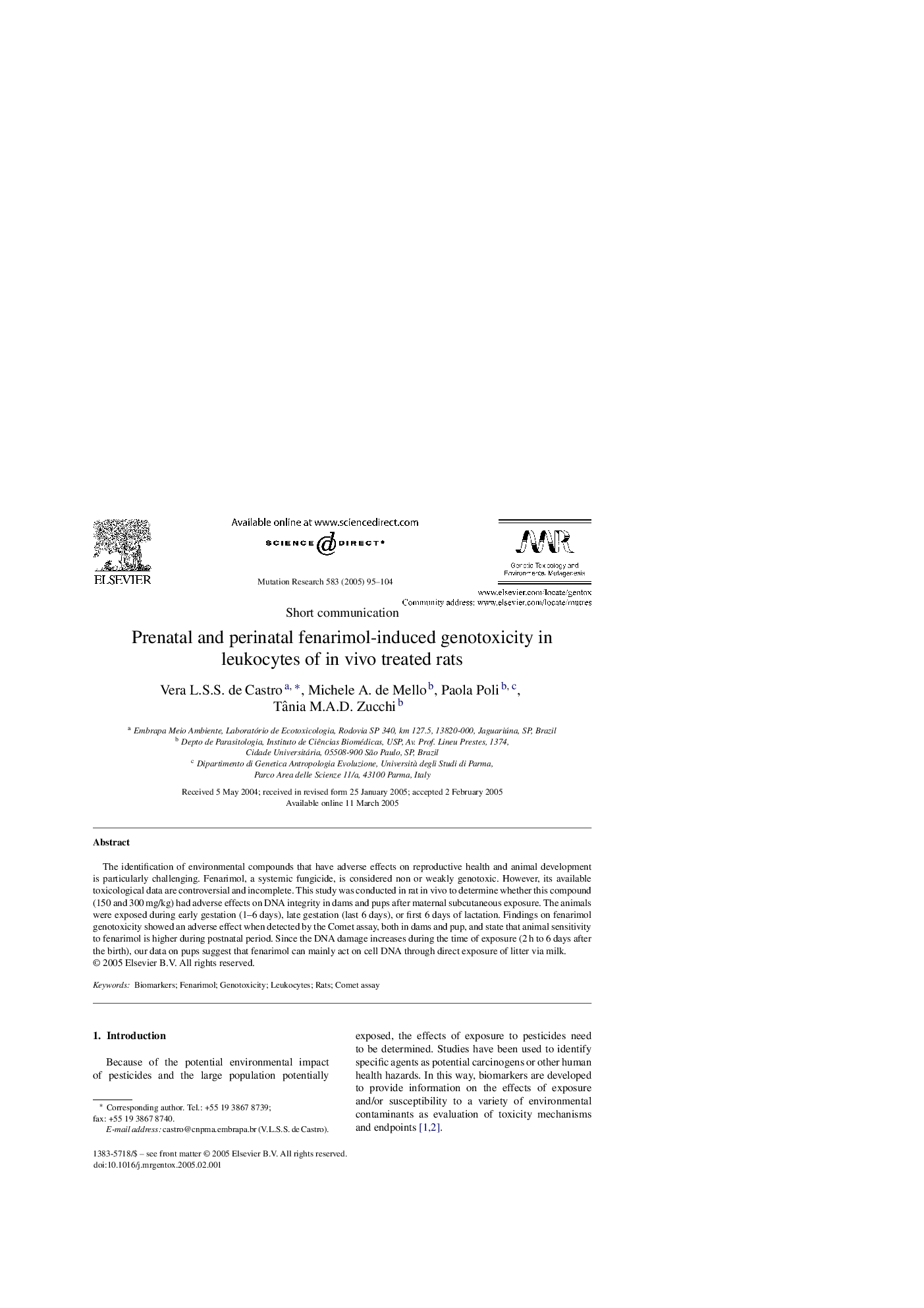| Article ID | Journal | Published Year | Pages | File Type |
|---|---|---|---|---|
| 10915056 | Mutation Research/Genetic Toxicology and Environmental Mutagenesis | 2005 | 10 Pages |
Abstract
The identification of environmental compounds that have adverse effects on reproductive health and animal development is particularly challenging. Fenarimol, a systemic fungicide, is considered non or weakly genotoxic. However, its available toxicological data are controversial and incomplete. This study was conducted in rat in vivo to determine whether this compound (150 and 300Â mg/kg) had adverse effects on DNA integrity in dams and pups after maternal subcutaneous exposure. The animals were exposed during early gestation (1-6 days), late gestation (last 6 days), or first 6 days of lactation. Findings on fenarimol genotoxicity showed an adverse effect when detected by the Comet assay, both in dams and pup, and state that animal sensitivity to fenarimol is higher during postnatal period. Since the DNA damage increases during the time of exposure (2Â h to 6 days after the birth), our data on pups suggest that fenarimol can mainly act on cell DNA through direct exposure of litter via milk.
Related Topics
Life Sciences
Biochemistry, Genetics and Molecular Biology
Cancer Research
Authors
Vera L.S.S. de Castro, Michele A. de Mello, Paola Poli, Tânia M.A.D. Zucchi,
